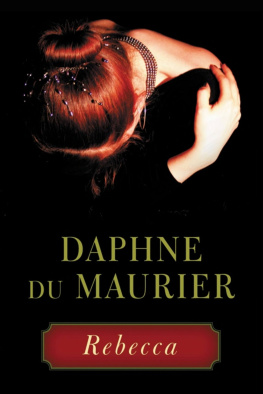Daphne Patai - Heterophobia
Here you can read online Daphne Patai - Heterophobia full text of the book (entire story) in english for free. Download pdf and epub, get meaning, cover and reviews about this ebook. year: 2000, genre: Detective and thriller. Description of the work, (preface) as well as reviews are available. Best literature library LitArk.com created for fans of good reading and offers a wide selection of genres:
Romance novel
Science fiction
Adventure
Detective
Science
History
Home and family
Prose
Art
Politics
Computer
Non-fiction
Religion
Business
Children
Humor
Choose a favorite category and find really read worthwhile books. Enjoy immersion in the world of imagination, feel the emotions of the characters or learn something new for yourself, make an fascinating discovery.
- Book:Heterophobia
- Author:
- Genre:
- Year:2000
- Rating:4 / 5
- Favourites:Add to favourites
- Your mark:
- 80
- 1
- 2
- 3
- 4
- 5
Heterophobia: summary, description and annotation
We offer to read an annotation, description, summary or preface (depends on what the author of the book "Heterophobia" wrote himself). If you haven't found the necessary information about the book — write in the comments, we will try to find it.
Heterophobia — read online for free the complete book (whole text) full work
Below is the text of the book, divided by pages. System saving the place of the last page read, allows you to conveniently read the book "Heterophobia" online for free, without having to search again every time where you left off. Put a bookmark, and you can go to the page where you finished reading at any time.
Font size:
Interval:
Bookmark:



D A P H N E P A T A I

To the men in my life (they know who they are), all of them as much sinned against as sinning, who made it impossible for me to abide grotesque caricatures of manhood, even when asserted by feminists
AND ESPECIALLY to the memory of my father, Raphael Patai (1910-1996), who could not tolerate the abandonment of his two little daughters and, in froze 1950, brought us to this country to live with him
NOT EVERYTHING IS NARRATIVE
D. 1'.
The Song of Songs 6.10

xi
PART I: THE MAKING OF A SOCIAL PROBLEM
Chapter 1 17
Chapter 2 33
PART II: TYPIFYING TALES
Chapter 3 65
Chapter 4 79
Chapter 5 105
PART III: THE FEMINIST TURN AGAINST MEN
Chapter 6 129
Chapter 7 163
Chapter 8 185

Like many women in our society, I have experienced what is now labeled "sexual harassment"--on the street, in school, and at work. In Paris, it man once grabbed my breast as he walked by me (I knew, as he approached me, that he was going to do something, but I didn't have the nerve to cross the street). In a crowded subway in Rio de Janeiro, a man behind me masturbated while pressing up against me. In New York, it man whispered as he passed me, "Boy, would I like to eat that!" Before graduate school, when I worked as a secretary, one of my bosses was constantly irritated with me because I refused to date him. I finally complained to his superior, who rebuked us both: my immediate boss for pestering me, and me for being flirtatious. In another job, a boss said to me, "You must be horrible in bed-you're so efficient!" This same man asked me to count the steps up the Eiffel Tower (for the guidebook he was writing) and to do it on my own time. I refused; no, he slid not fir(, Inc.
As a graduate student, I was pursued for two years by a professor from whom I nonetheless learned a great deal. When I went for a job interview after completing my Ph.D., an elderly male faculty member said, while shaking my hand, "She's pretty. Hire her!" (This didn't unnerve me nearly as much as (lid a female professor who sat filing her nails while I gave a public lecture as part of my interview.) Especially in the early years of my career as a teacher, I had male students occasionally make nude and arguably sexist comments to me. One wrote on my lectern, "Dafney, you are a feminist bitch!" Another, on a teaching evaluation form, advised me which of my hairstyles was sexiest. In class, when I was an assistant professor, a boy disagreed with a fact I had cited by saving out loud, "You know what you can do with your facts!" Still another borrowed books from me and repeatedly tried to come to my house to return them. And (in a reversal of my graduate school experience) an undergraduate student of mine, a young woman, declared herself to me and pursued me (in person, by mail, and by phone) for two years.
These episodes were not pleasant, but neither were they devastating. Least of all were they typical of my interactions with other human beings. Unlike many present-day commentators on the subject, I would feel exceedingly foolish if I were to refer to myself as a "survivor," or even a "victim," of sexual harassment. None of these experiences did me any real harm. But even if they had-and even if I grant that other women might react differently or have more disturbing experiences-I would have to weigh and measure the benefits of being spared this sort of behavior against the costs of preventing it. Certainly I cannot join forces with those activists who want to see all such events-even the pettiest street harassment that is not (yet) actionable in most placesbecome illegal.
There is, moreover, another side of the coin, which must also be acknowledged. True, I have never groped a strange man's crotch, but when I was a student, I did indeed aggressively pursue professors who interested me. So did many of my female friends. I used to find excuses to go to their offices and lead the conversation to personal subjects. Sometimes my girlfriends and I would follow a "favored" professor around in a car. Once I even trailed a man on foot for a block or two because his aftershave left an enticing fragrance in the air. (Was this "stalking"?) I have written "unwanted" letters of invitation to a professor-and-boss I found attractive. Rejection depressed me and made me angry. But I got over it.
From these incidents I take a simple lesson: that the experience of sexual interest and sexual play (which can indeed be obnoxious at times) is an ordinary part of human life, manifest in different ways in different societies but predictably present in one way or another, as it must have been since the Garden of Eden. It seems to me that except for egregious offenses such as assault, bribery, or extortion (whether sexual or not)-for which legal remedies have existed for many yearsthe petty annoyance of occasional misplaced sexual attentions or sexist putdowns has to be tolerated. Why? Because the type of vigilance necessary to inhibit it would create a social climate so unpleasant, and ultimately so repressive, that the cure would be much worse than the disease.
Would we really want to live in a sanitized world in which each of us is fully protected from any offensive or otherwise unwanted word or gesture? In which every interaction must be scrutinized for possible sexual implications or slights based on gender? In which a kind of paranoia poisons the yen' idea of sexual expression between people in situations containing that supposedly fatal element, a "power imbalance? I don't think so. Yet from the very beginning, the subject of sexual harassment has been marked by definitions rooted in feminist assumptions about the relations between men and women, assumptions that are long overdue for questioning.
Today those with sensitivities heightened by feminist rhetoric are rewarded by being handed legal weapons to wield against their colleagues and teachers. A psychology professor at one school filed a grievance because someone in her department had put up a sprig of mistletoe. Result: it campus regulation stipulating that mistletoe has to be removed if anyone complains. Ironically, as story after story in the mounting literature on sexual harassment reveals, teachers who are most devoted to their classroom work, who are most ready to chat with students and to demystify the boundaries between teacher and student (as recommended by feminist pedagogy), are most often the ones who find themselves caught in the web of sexual harassment charges.
Font size:
Interval:
Bookmark:
Similar books «Heterophobia»
Look at similar books to Heterophobia. We have selected literature similar in name and meaning in the hope of providing readers with more options to find new, interesting, not yet read works.
Discussion, reviews of the book Heterophobia and just readers' own opinions. Leave your comments, write what you think about the work, its meaning or the main characters. Specify what exactly you liked and what you didn't like, and why you think so.













